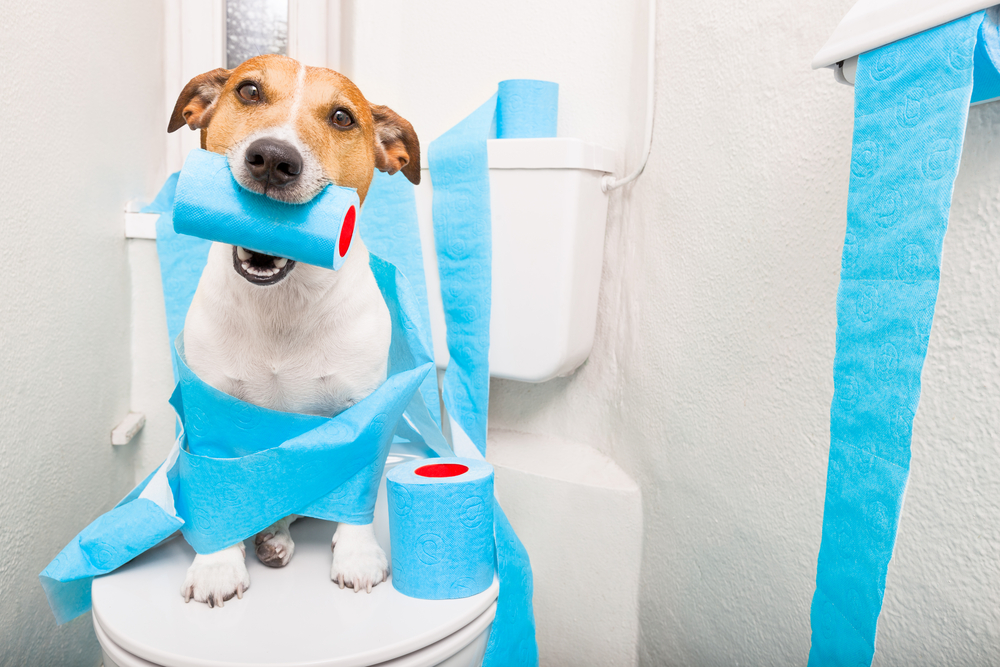Sometimes, diarrhea can be a normal part of body function. It is an effective way to purge the human or animal body of toxins or pathogens. However, if the diarrhea lasts more than 48 hours, it can indicate a health problem. If your pet produces loose stool, you should determine whether it is a normal reaction or an indication of an emergency. Diarrhea is one of the most common reasons for visits to the vet.
When Your Dog Has Diarrhea
Diarrhea in itself is not a disease but rather a symptom of an underlying problem. When it increases in frequency or stool looseness, food is moving through the digestive tract too fast. The tract absorbs less water, nutrients, and electrolytes.
Diarrhea can be urgent, where the pet cannot hold it, or can occur when the pet has bowel movements. A gut health analysis is vital to determine the cause. Diarrhea usually clears on its own, but sometimes it can lead to lethargy, vomiting, and dehydration.
Types of Diarrhea in Dogs
There are two types of diarrhea in dogs. Acute diarrhea is usually sudden and resolves on its own or after simple treatment. Chronic diarrhea occurs when the dog fails to respond to common treatments or when the diarrhea continues after treatment.
The condition is chronic if it lasts more than two weeks. While it is rarely an emergency, chronic diarrhea can lead to dehydration and malnutrition. If not treated promptly, it can progress to organ shutdown or death.
Causes of Diarrhea in Dogs
Diarrhea occurs when the body fails to absorb nutrients appropriately or when the intestines are inflamed or not functioning well. Common causes include:
- Food allergy or sensitivity.
- Ingesting toxins.
- Parasites.
- Inflammatory bowel disease (IBD).
- Exocrine pancreatic insufficiency.
- Exercise-related diarrhea.
- Stress.
- Medication side effects.
- An underlying illness or health issue, such as pancreatitis or liver and kidney disease.
Diarrhea can be small or large-intestine diarrhea, and both can lead to acute or chronic diarrhea. Small intestinal diarrhea is usually high in volume and frequent and often occurs with vomiting. Large intestinal diarrhea is relatively low volume, occurs several times throughout the day, and the stool is often bloody.
When to Visit the Vet
If your dog has a single episode of diarrhea and behaves normally, there may be no cause for concern. Monitor your dog’s bowel movements to determine if things are clear. More than two episodes can indicate a problem, and you should contact your vet. Symptoms that indicate you need to visit a vet include:
- Vomiting.
- Weakness.
- Blood in the stool.
- Loss of appetite.
- Signs of dehydration.
- Unusual drooling.
Diagnosing Diarrhea in Dogs
Veterinarians diagnose chronic diarrhea when a dog fails to respond to regular diarrhea treatments and the condition persists. It helps when the dog has diarrhea for over two weeks or experiences frequent bouts that fail to resolve.
To diagnose the cause, veterinarians begin by ruling out underlying health conditions. Analyzing the dog’s medical history, conducting a physical exam, and performing tests help to establish the cause. The tests check for parasites, diet problems, underlying illnesses, infectious diseases, and more. You should never give your dog human medications without contacting your vet.
For more on why your dog has diarrhea, visit Mokena Animal Clinic at our office in Mokena, Illinois. Call 708-479-2811 to book an appointment today.


